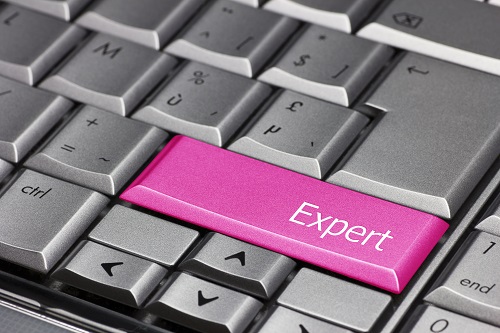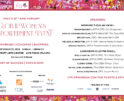
Job Interviewing Skills with Expert Chantel Bonneau
Ready for your job interview? Chantel Bonneau, a UCLA graduate and College Unit Director at Northwestern Mutual – Los Angeles, gives advice on how to ace your next interview.
Q: What steps do I take prior to my job interview?
Do your research. Go to the company’s website and read up on its mission, values, culture, clients, etc. If you know specifics about who you’ll be interviewing with, do a simple Google search and add the interviewer(s) on LinkedIn. This is an easy way to get to know a little bit about who you’re about to sit down with.
Find out how long it takes to get to the location of your meeting and map a route to get there, especially if the interview is taking place in an area unfamiliar to you. Make sure to allocate enough time for additional delays or traffic.
Confirm your interview at least 24 hours before. If you haven’t received a confirmation, call. It’s another easy way to demonstrate that you’re eager to meet.
Think about questions you might have for the interviewer (e.g. about his or her role, the company’s culture, day-to-day life, etc.) Write them out ahead of time so you’re prepared for a two-way dialogue.
Q: Hmm… what do I wear to my interview?
Think conservative – it’s better to be overdressed than appear too casual. It might be helpful to ask yourself, “Would I wear this in front of a date’s parents?”
Q: How early should I arrive to my interview?
Plan to show up for your interview five minutes early. This gives you time to check in and take a few deep breaths before your meeting. If you show up too early, you could make the interviewer feel rushed. It could also imply a lack of time management skills.
Arriving late is unacceptable. Your interviewer may assume you don’t care about his or her time, you’re unorganized, or simply disinterested.
Q: What should I bring with me?
Always bring a copy of your cover letter and resume (even if the interviewer already has it). Also bring a folder with additional copies in case you’re interviewed by more than one person. Never assume your cover letter was read from beginning to end. Hiring managers are often very busy, so you should touch on points addressed in your letter.
Share your portfolio. If appropriate, bring examples of your work that align with the job you’re interviewing for.
Come with paper and something to write with (along with that list of questions you wrote down).Taking thoughtful notes during your conversation will show that you’re engaged and prepared to listen.
Q: What kinds of questions can I ask?
It’s highly unlikely that the interviewer will cover everything you want or need to know about the position you’re applying for, so feel free to ask questions. If you can’t think of any questions, you can also ask for feedback. Below is a list of questions you might ask an interviewer:
- What do you like most about the company?
- Why do you choose to work here?
- In what capacity might we work together?
- What is the rate of turnover here? How many people stay long-term?
- What opportunities exist for individual growth and leadership development?
- For the position I’m applying for, what might success look like?
- What charities or local organizations are the company tied to?
Q: Are there questions that should be avoided during an interview?
Be conscious about what questions you ask during a first interview. Remember, an interview is not typically a time for salary negotiations to take place. Also, be careful not to ask personal questions that the interviewer might feel uncomfortable answering. Here are some questions to avoid:
- How much paid time off (vacation time) will I receive?
- Do you like the other people that work here?
- What do you dislike most about the company?
Q: Is it okay to ask about compensation and/or benefits during an interview?
If you’re already aware of the interview process and, for example, know that compensation is discussed in the third interview, wait until then to ask about it. In general, compensation shouldn’t be the first thing you talk about (unless it’s brought up by the interviewer).
Q: If I’m asked what I’d like to be paid, how should I respond?
This question is tricky and usually meant to gauge how much you think you’re worth – and if you’re in touch with reality.
Know that you don’t have to answer this question on the spot. It’s okay to ask for additional time to give the questions a more thoughtful answer. You should typically get back to them within 24 hours.
You can prepare yourself by researching your career field. Websites like Glassdoor.com and PayScale.com will help you understand the range of salaries someone of your skill and experience level might earn.
Ask someone you know and trust in your field to give you honest feedback about what they’d offer you for a similar position.
If you’ve held a previous internship or full-time position in the field, consider your starting (and ending) salaries. For example, if you made $20,000 a year at your internship (prior to graduation), perhaps you’re comfortable with $28-30,000 starting.
You can learn more about how to negotiate your salary on our site.
Q: If I have to cancel an interview, how should I go about it?
If you have a cold, do what you need to do to manage it. It’s okay to let the interviewer know you’re a little under the weather. Just don’t complain about it!
If you’re no longer interested in the job or decide not to take the interview, graciously and politely decline via phone or send an apologetic email.
Q: What is something you wish you could tell interviewees but don’t?
We schedule our college internship interviews early in the morning on purpose. We want you to be alert, awake and engaged, and show us that you prioritized the interview over maybe going out the night before.
Photo by Jurgenfr | Shutterstock
Recommended
-
Getting What You Want At WorkDecember 20th, 2024
-
Fall 2024 EventNovember 19th, 2024
-
Pink ProgramOctober 20th, 2024
-
Influential LeadershipOctober 20th, 2024
-
REGISTER HERE FOR THE UPCOMING...September 19th, 2024















